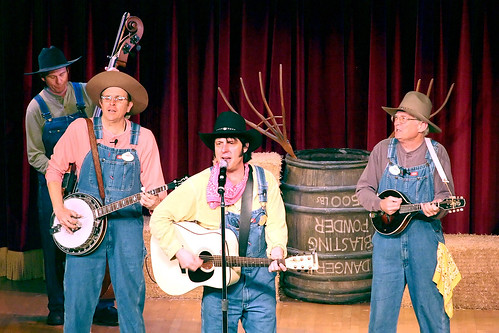I’ve looked at Sacrosanctum Concilium, Musicam Sacram, Music in Catholic Worship, Liturgical Music Today (from the USNCCB), the GIRM, the Instructions in the Lectionary, and even a document regarding Masses for children. I talked to a seminary student at a very faithful seminary as well.
Basically, what I’ve gotten out of it is this. There are no hard and fast rules regarding music in the Liturgy for one important reason: music is a sign in the Liturgy which is meant to point to several things, and what exactly constitutes a musical sign differs from culture to culture. A piece of music that would be considered reverant in some African nation might be considered highly inappropriate for a Liturgical celebration in the United States. As a result, the Church has laid out certain principles that are to be followed, rather than straightforward prescriptions.
The most fundamental point is that the purpose of music in the Liturgy is “the glory of God and the sanctification of the faithful.” (Musicam Sacram, 4) A point which stems from this, and which is reiiterated over and over by these documents (as well as by at least 3 popes) is that music must always “serve and never dominate” (Music in Catholic Worship, 23). Finally, and I think very important for this discussion, is the definition of Sacred Music: “By sacred music is understood that which, being created for the celebration of divine worship, is endowed with holiness and goodness of form. The following come under the title of sacred music here: Gregorian chant, sacred polyphony in its various forms both ancient and modern, sacred music for the organ and other approved instruments, and sacred popular music, be it liturgical or simply religious.” (Musicam Sacram, 4).
Without getting into a bunch of quotations, the general teaching of the Church is that sacred music should be what is considered reverant, sacred, and solemn in a given culture. This may change with the culture. It is permissible, and indeed encouraged, to incorporate the local culture into the musical tradition of a given local Church, but even here there are limits. Pius X taught, for example, that sacred music must “be universal in the sense that while every nation is permitted to admit into its ecclesiastical compositions those special forms which may be said to constitute its native music, still these forms must be subordinated in such a manner to the general characteristics of sacred music…” (Inter sollicitudines)
There’s a lot more I could say, but to bring this all home to this specific case, I see a few points worth making.
First, I think that this would be far more easily justified if it were to have taken place in the midwest, where bluegrass is in fact a cultural music, or if there were a large midwestern population in Seattle. As Ghosty has pointed out, the Church makes provision for Liturgical which emphasize a particular cultural tradition. Thus, a parish in my town was not wrong to hold an “Asian Mass” featuring Asian music for the local Asian community. The one important qualifier that the Church makes is that these things should not result in a particular group celebrating only together, and so it ought to be a matter of sepcial occasion rather than a common event. Is there a large enough population of midwesterners in Seattle to warrant this? I am not from Seattle, so I don’t know.
Secondly, what exactly was done in this Mass? Was it simply the use of bluegrass instruments playing typical melodies and harmonies? That would be less likely to be problematic than playing bluegrass style music, which would seemm to be very hard to qualify as Sacred music according to the Church’s definition. Also, there are certain musical parts of the Mass which are rigidly restrcited to approved music. If any of these were not maintained, that would be very problematic.
Thirdly is the matter of the instruments themselves. One could make a rather strong case that the bajo is not permissible as an instrument for a Liturgical celebration. Musicam sacram states that “One criterion for accepting and using musical instruments is the genius and tradition of particular peoples. At the same time, however, instruments that are generally associated with and used only by worldly music are to be absolutely barred from liturgical services and religious devotions”(63). The banjo would seem to fall under this prohibition.
Overall, I feel much more strongly opposed to the idea of a Bluegrass Mass than I did when I first considered the issue last night. After reading what the Church has to say on the matter of Liturgical music, I can’t justify any of the possible variations of what a bluegrass Mass might entail, even the idea of simply using a banjo to play typical sacred music. There is a lot more that goes into my thinking than I’ve been able to present here, but this might be some food for thought.

